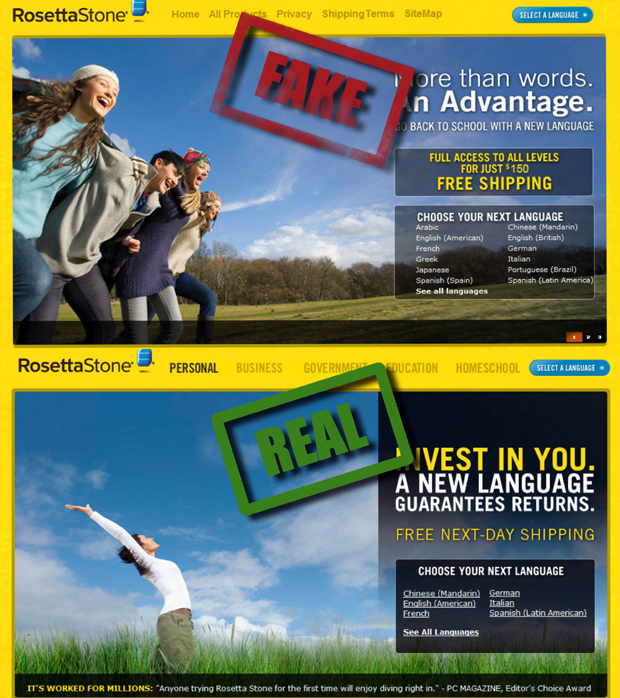How to avoid falling for counterfeit goods
The problem of counterfeiting is a huge one: The Organisation for Economic Co-operation and Development (OECD) estimates that counterfeiting generates a whopping $250 billion a year in criminal proceeds.
There are many victims of this crime, including customers who receive subpar or non-working goods and services, and of course businesses.
"If you could make it, they can fake it," says Robert Barchiesi, president of the International AntiCounterfeiting Coalition.
Everyday, customs agents from the Department of Homeland Security stop $4.7 million worth of counterfeit products from entering the U.S. But, knockoff products continue to find their way onto store shelves.
And, it doesn't stop there, as Barchiesi explains: "The issue is shifting. There's a shift from physical brick-and-mortar locations to the virtual world, to online counterfeiting."
The government has started focusing more aggressively on Internet counterfeiting and piracy.
"Operation In Our Sites," launched in 2010, has seized 2,700 domain names. But, shut one site down, and another pops up. As Barchiesi explains, it's all for one simple reason -- money.
"This is a low-risk, high-reward, criminal enterprise and there's a lot of money involved," Barchiesi says. "You can make more money selling this than you can selling illicit drugs."
Some buyers are duped into believing they're getting brand name products. Copycat sites can be hard to differentiate from the real deal.
Take for example a fake and a real Rosetta Stone website. The similarities are startling:
But some buyers know and seek out counterfeits -- that's exactly what they want -- think fake handbags, watches, fragrances and the like.
"It's a perfect storm," Barchiesi says. "You have a copycat culture in China. You have U.S. consumers that have an insatiable appetite to look for a bargain. You put those two together, and it's the perfect storm of supply and demand"
Surprisingly, buying a counterfeit good is not illegal.
Legal or not, Barchiesi explains why buying fake goods and services is a big no-no. "You're putting yourself and your family at risk when you buy these types of products.
"It's not a victimless crime. It's actually a killer. It kills jobs. It kills economies. And, it kills people," he explains.
Many knockoff products are poorly constructed and are not in compliance with U.S. safety standards. And, counterfeits cost billions in lost sales, taxes and growth.
Here's some tips on how to avoid buying bogus brands online:
1. Check the price: "The easiest and biggest indicator, whether you're online or you're at a physical location that sells products, is the price," Barchiesi says. "If their price is too good to be true -- it is."
2. Watch for grammatical errors and misspellings: Most reputable websites will not have any mistakes. "If you see misspellings," Barchiesi says, "you could assume it's probably not a real website."
3. Contact customer service: If you're not sure a site is legit, try the customer service contact to make sure before you buy. "You're not gonna get that on most counterfeit websites," Barchiesi says. "Or, if you do, they're not gonna work."
If he could offer any one piece of advice to online shoppers, Barchiesi says it would be "let the buyer beware."
After all, you get what you pay for.
